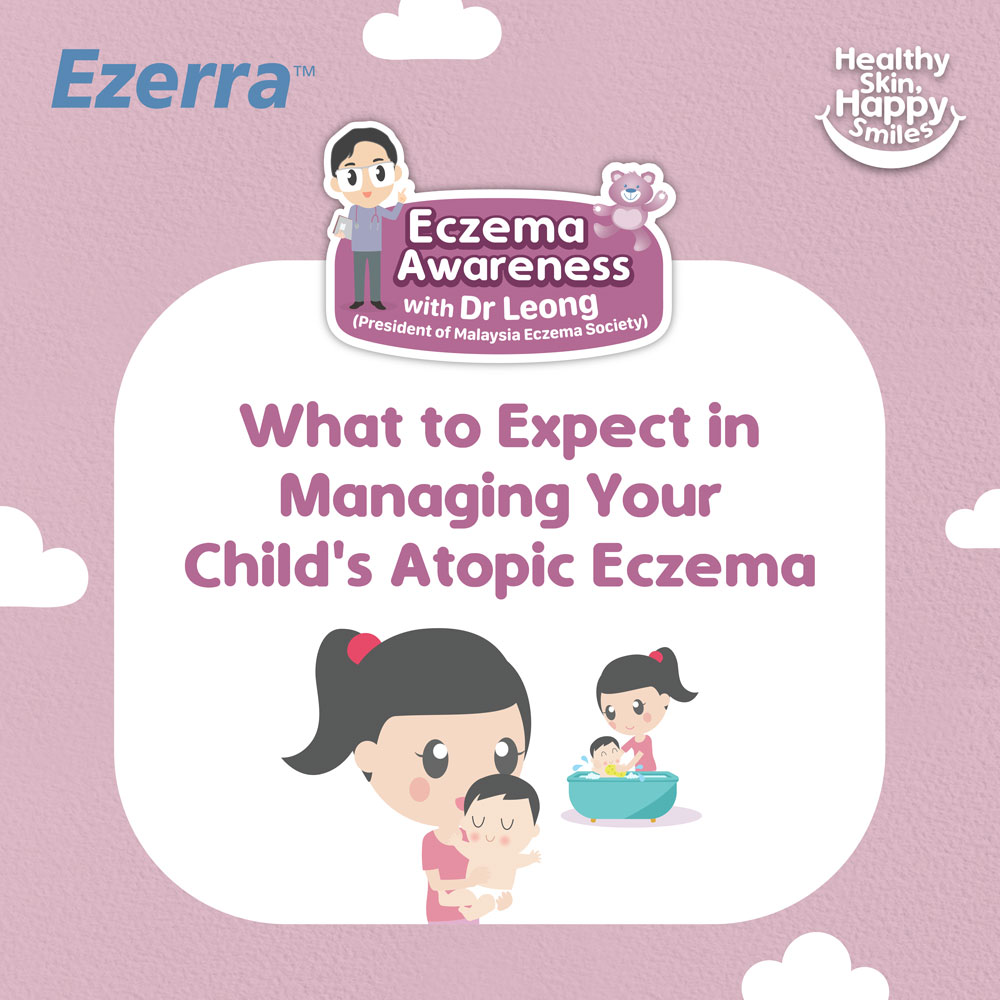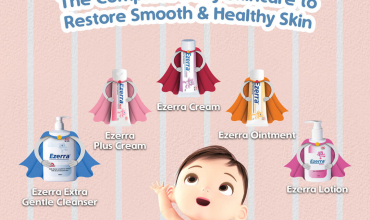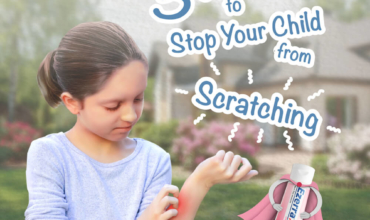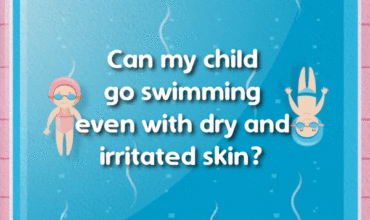Managing Your Child’s Eczema: What to Expect
Now that you’ve grasped the knowledge of what eczema actually is, and the signs and symptoms of eczema, how do you actually manage these symptoms and can your child actually grow out of it? Read on to learn the things you need to know about managing your child’s eczema.
What are the underlying causes of atopic dermatitis?
This is one of the top 5 most frequently asked questions about eczema. Instead of discussing the underlying causes of eczema, let’s use the reverse technique and talk about “What are NOT the underlying causes of eczema” because there is too much misinformation, myths and fallacies about eczema and the cause of eczema in the cyber world. Here’s the 4 things you need to know;
- Eczema is not the final diagnosis.
As an example, when a child has fever, fever is not the final diagnosis but it will alert the doctor to search and hunt for further infections. Similarly, when a child has eczema, the doctor will go all out to identify what are the predisposing, perpetuating, and flare factors during a major flare up.
- Eczema is not equal to allergen or food allergy.
Though eczema is not a form of allergy, we do agree that allergies play a role in the pathogenesis of eczema, but not everything about eczema equals to allergy. Eczema could be induced by environmental irritants, pollutants, environmental allergens, as well as the imbalance between good and harmful bacteria that sit on the skin which might induce inflammation.
- Eczema is not a lab diagnosis.
In another word, there’s no need to spend hundreds or thousands of ringgit to do tests in an effort to diagnose eczema. A clinical assessment based on the appearance and the progression of the appearance by experienced and well-trained family dermatologists and family care practitioners is needed to diagnose eczema.
- Eczema is not fixed or static.
Eczema is a disease with a dynamic story. Every eczema patch has a different story. If a child has 2 patches of eczema on the face, another 2 in front of the elbow and 2 more behind the knee, the story to explain the eczema patches on the face is different than the rest even though all these eczema patches are on the same patient.
Once you have successfully removed the distracting and confusing myths and fallacies about the underlying causes of eczema, you are now ready to move from “what are NOT” to “what are” the underlying causes of eczema. Eczema, from a practical point of view, can be divided into 2 groups; simple eczema and complex eczema. Simple eczema is potentially curable if you identify its allergens or irritants, remove them, then eczema may be resolved while complex eczema is so dynamic to the extent that even the eczema patches on the same patient have different mathematics behind them. The mathematics of this complex eczema are also dynamic according to age groups and environmental exposures. One of the complex eczema is the well-known atopic eczema.
Does food allergy cause atopic eczema?
One of the most exciting but confusing and debatable questions about atopic eczema is whether or not food allergy causes atopic eczema. No, food allergy DOES NOT cause atopic eczema, although, food allergy may trigger an eczema flare up. This also means that it may cause the worsening of existing eczema symptoms. For example, a child has typical eczema patches and at the same time, he also has cow’s milk allergy and one day, he accidentally ingested a piece of cake that contained cow’s milk. The next 30 minutes, he will develop another itchy rash called urticaria (hives). So, when you have eczema + urticaria, it’s a disaster! Constant rubbing and scratching are expected to exacerbate the existing eczema on folded areas. After 2-8 hours, the hives will start to improve, but the eczema may worsen. Therefore, avoiding cow’s milk may not cure eczema but may improve the skin condition with minimal fluctuation and flare, and is helpful in proportional patients.
So, it is important to counsel all the family consultants with different schools of thoughts. Failure doing so may cause the treatment regimen to end up with poor accuracy and compliance. Another very stubborn opponent in the counselling process is the myth spreaders in the cyber world. This includes celebrities and influencers that are standing in the dark side of the cyber world trying to sell off their products by giving false information and expectations.
What are the common complications of atopic eczema?
Eczema is beyond skin deep. The inflammation, infection and itchiness may cause psychosocial and personality disorders aside from the physical complications. Among the physical complications, the most common one is secondary infections. Of all these infections, bacteria being the most common, fungal being the most confusing, and the virus called herpes simplex is the most dangerous and urgent while the human pox virus is the most disturbing one in terms of cosmetics.
Besides these secondary infections, atopic eczema patients also tend to develop psychosocial disorders like anxiety, depression, low self-confidence, etc because of the chronic itch. The most important message in managing your child’s eczema is to control it well so the inflammation is truly in remission and the skin can be repaired slowly over time. Do not wait it out because it does not work on atopic eczema as eczema is intensely itchy and may present with frequent infections.
Do children with atopic eczema grow out of it?
If your beloved baby develops atopic eczema, what are their long-term outcomes? This is one of the major parental concerns. Unfortunately, there is no one single modded answer to this question because atopic eczema is not a single uniform skin disorder. It is a heterogeneous skin disorder, with many faces of presentations, wide spectrums of severity; from mild, moderate, to severe. Fortunately, ⅔ of them belong to mild atopic eczema. If you manage to capture it early, halt the progression, flatten the curve with minimal fluctuations, most of them do outgrow eczema over the next couple of months or years.
Unfortunately, if you allow the eczema to progress to severe chronicity, the skin is going to get lichenified and they are exposed to a much higher risk to get persistent eczema into early adolescence and adulthood. It is much more difficult to reverse this process once the skin gets lichenified. If you don’t control it early enough, it might progress or march on to other organs including rhinoconjunctivitis, asthma and food allergies.
The second reason why there is no single modded answer is because I need to tailor the answer to the patient’s expectations and mental status. If the caregivers and the patient are depressed, at loss of hope, I need to boost up their confidence and highlight that the majority ⅔ will outgrow if you manage to flatten the curve over the next couple of weeks to months. Majority here is referring to the ⅔ who work hard and aggressively to control eczema. Childhood atopic eczema means the eczema onset in the first few years of life, therefore, not applicable for those having first time atopic eczema in adulthood. Outgrowing or growing out of eczema or going into long term remission; none of these equal to permanent cure of eczema. In short, atopic eczema sufferers still need to take care of their skin because many of them still have dry and sensitive skin.
Over the last decade, there are a lot of new effective and safe medicines available in the treatment of atopic eczema. So, always stay positive and personally, I foresee that the eczema control would be much better because of all these newly available treatment modalities.
All the best and see you in the next article where I will be answering some common FAQs on eczema. Stay tuned!
Prepared by:
Dr Leong Kin Fon
President of Malaysia Eczema Society
Disclaimer:
The content of this article is for educational purposes only. Seek the advice of your medical provider regarding any questions or concerns you have about your baby’s specific skin condition.
P/S: We are proud to present our Childhood Eczema Awareness series featuring Dr. Leong, the President of Malaysia Eczema Society! Watch the complete series at our YouTube channel to find out more about the rising prevalence of childhood eczema in Malaysia!

